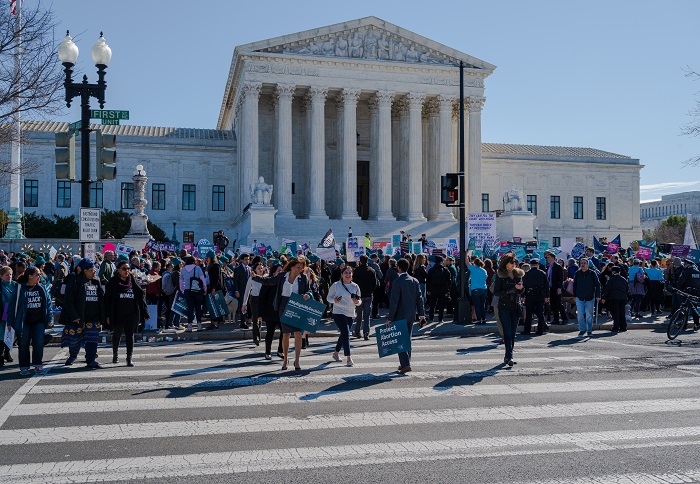By David G. Savage
Los Angeles Times air pollution California
(Los Angeles Times) — The Supreme Court on Monday dismissed a red-state constitutional challenge to California’s special authority to fight air pollution.
Over a dissent by Justice Clarence Thomas, the justices turned away an appeal from Ohio and 16 other conservative states, which asked the court to rule “the Golden State is not a golden child.”
While Monday’s brief order closes the door on a constitutional challenge to California’s anti-pollution standards, the court on Friday cleared the way for a different, more targeted legal challenge.
The oil and gas industry is suing over the state’s “zero emissions” goals for new vehicles, arguing California’s special authority to fight air pollution does not extend to greenhouse gases and global warming.
A lower court had dismissed that suit on the grounds the oil producers had no standing to sue. Their complaint was they would sell less fuel in the future.
On Friday, the justices agreed to reconsider that ruling early next year. They could clear the way for the suit to proceed.
Monday’s related order narrows the legal grounds that the industry can use to challenge California’s rule, assuming it eventually wins standing.
The incoming Trump administration is likely to intervene on the side of the challengers.
California Atty. Gen. Rob Bonta and U.S. Solicitor General Elizabeth Prelogar had urged the court to turn down both appeals. They said California’s strict emissions standards are designed to fight smog and other air pollution as well as greenhouse gases.

They argued that Congress had ample authority under the Constitution to set special rules for problems in different states.
Since early in American history, they said Congress approved special customs duties for some states or rules involving tribes relations.
In challenging California’s authority, Ohio’s Atty. Gen. David Yost pointed to the court’s 2013 decision that struck down part of the Voting Rights Act on the grounds it violated the principle of equal state sovereignty.
When Congress adopted national air pollution standards in 1967, it said California could go further because it was already enforcing strict standards to combat the state’s worst-in-the-nation problem with smog.
Ohio and red states say this special authority violates “core constitutional principles because no state is more equal than the others. And Congress does not have the general power to elevate one state above the others….Yet in the Clean Air Act, Congress elevated California above all the other states by giving to the Golden State alone the power to pass certain environmental laws.”
Without commenting, the justices said they would not hear the constitutional claim.
The Environmental Defense Fund hailed the court’s announcement.
“California’s clean car standards have successfully helped reduce the dangerous soot, smog, and climate pollution that put all people at risk, while also turbocharging clean technologies and job creation,” said Alice Henderson, lead counsel for its clean-air policy group.
©2024 Los Angeles Times. Visit at latimes.com. Distributed by Tribune Content Agency, LLC.


